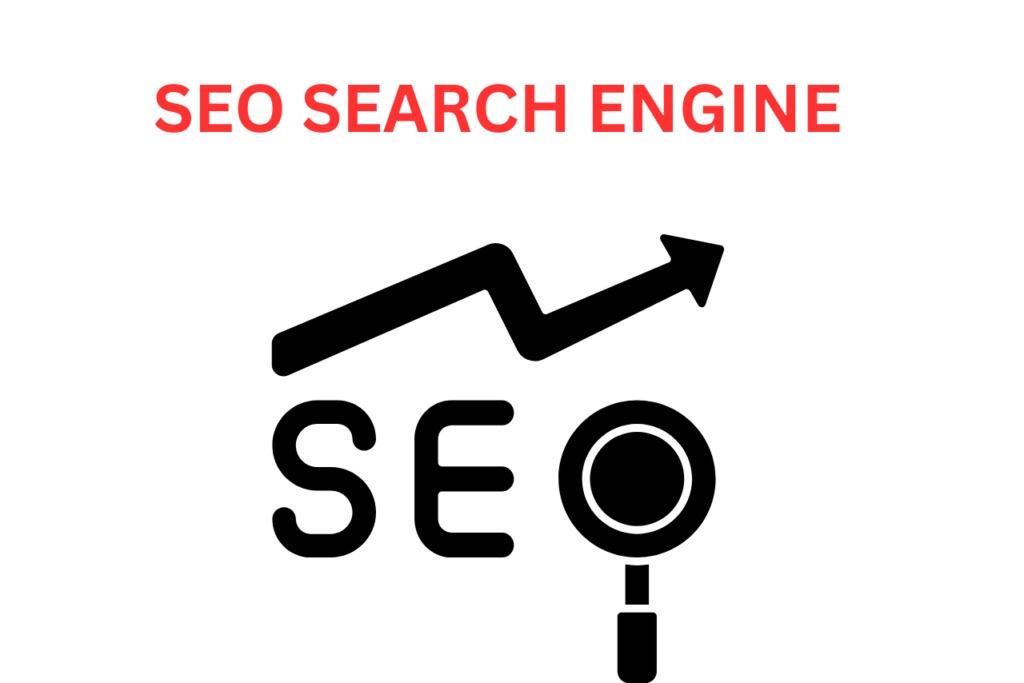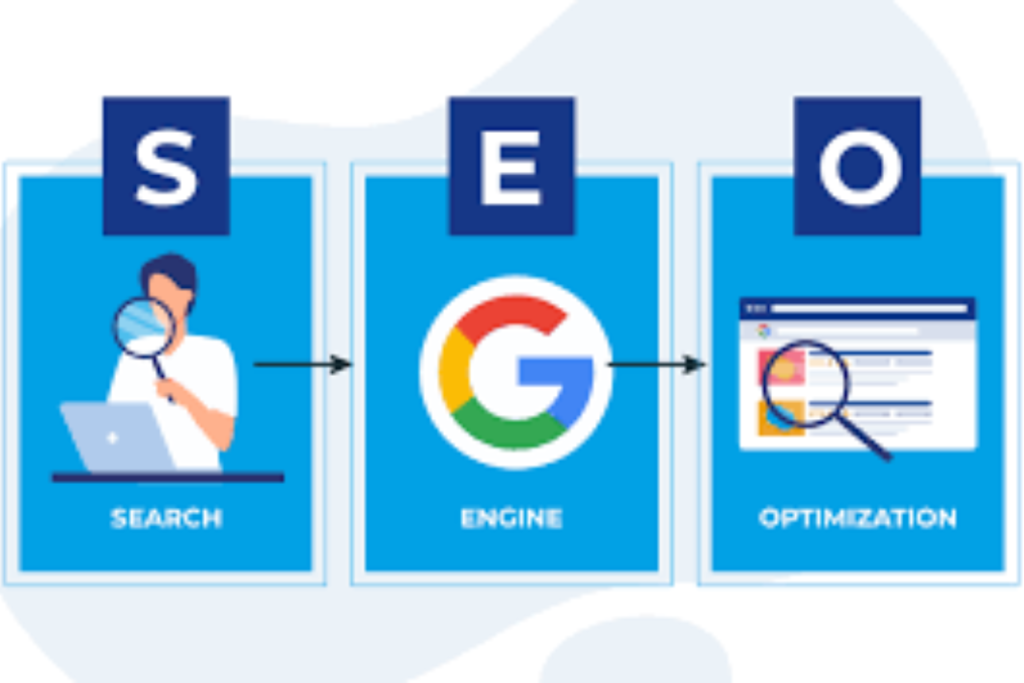Table of Contents
Introduction
In today’s digital landscape, SEO optimization stands as a cornerstone of successful SEO marketing. Imagine crafting a beautiful, user-friendly website only to see it lost in the vast sea of search engine results. Without effective SEO optimization, even the most polished websites can remain invisible to potential customers. SEO optimization involves a series of strategic practices designed to improve your website’s visibility on search engines like Google, thereby enhancing your overall marketing efforts.
SEO optimization is not just about tweaking individual elements but rather about creating a cohesive strategy that addresses both technical and content-related factors. It impacts SEO marketing by driving organic traffic, increasing brand credibility, and ultimately boosting conversion rates.
In this article, we’ll delve into how you can harness SEO optimization to power your SEO marketing strategies. You’ll learn practical techniques for keyword research, on-page and technical SEO, and off-page tactics that will help elevate your website’s search engine ranking and attract more qualified leads. By the end, you’ll have actionable insights to refine your SEO approach and achieve greater success in your marketing endeavors.
The Essentials of SEO Optimization
SEO optimization is a comprehensive process aimed at improving a website’s visibility and ranking on search engine results pages (SERPs). It involves a range of techniques and strategies designed to make your site more accessible and appealing to search engines, thereby driving more organic traffic.

Effective SEO optimization is crucial for enhancing SEO marketing efforts. It helps ensure that your website is easily discoverable by users searching for relevant terms, which can significantly boost your online presence and engagement. By optimizing various aspects of your site, you improve its relevance and authority, leading to better rankings and increased credibility in the eyes of both search engines and potential customers.
Key components of SEO optimization include:
- Keyword Research: This foundational step involves identifying the terms and phrases that potential visitors use when searching for information related to your business. Effective keyword research helps you target the right audience and align your content with their search intent.
- On-Page SEO: This aspect focuses on optimizing individual pages of your website. It includes elements such as creating compelling meta titles and descriptions, using header tags properly, and ensuring content is relevant and engaging. On-page SEO ensures that each page is structured in a way that search engines can easily understand and rank.
- Technical SEO: This involves optimizing the technical aspects of your website to enhance its performance and crawlability. Key areas include improving site speed, ensuring mobile-friendliness, and creating a clear URL structure. Technical SEO helps search engines navigate and index your site more efficiently.
- Off-Page SEO: This component focuses on building your site’s authority and reputation through external factors, such as acquiring high-quality backlinks from other reputable sites. Off-page SEO also includes leveraging social media and online mentions to increase your site’s visibility and credibility.
By addressing these core elements, SEO optimization lays the groundwork for effective SEO marketing, helping you achieve better search engine rankings and attract a more targeted audience.
Effective Keyword Research for SEO Optimization
Keyword research is a fundamental aspect of SEO optimization https://www.google.com/search?q=seo+optimization&oq and plays a pivotal role in SEO marketing. It involves identifying the terms and phrases that potential customers use when searching for information relevant to your business. By understanding and targeting these keywords, you ensure that your content aligns with user intent, thereby increasing the likelihood of ranking higher in search engine results and driving more organic traffic to your site.
Why Keyword Research Matters
Effective keyword research is crucial for several reasons. It helps you uncover the language and terms that your target audience uses, enabling you to create content that meets their needs and queries. By targeting the right keywords, you can attract more qualified leads, improve your search engine rankings, and enhance your overall SEO marketing strategy. Without keyword research, you risk missing out on valuable opportunities to connect with potential customers.
Tools and Techniques
Several powerful tools can aid in your keyword research efforts. Google Keyword Planner is a popular choice, offering insights into keyword search volume, competition, and trends. Ahrefs provides detailed keyword analysis, including keyword difficulty and potential traffic. Other tools like SEMrush and Moz also offer valuable data to help you identify effective keywords.
When researching keywords, focus on identifying both primary and secondary keywords. Primary keywords, such as “SEO optimization,” should be central to your content strategy, while secondary keywords, like “SEO marketing,” support and complement the primary terms. Use these tools to find variations and long-tail keywords that reflect the specific queries your audience might use.
Keyword Integration
Once you’ve identified your target keywords, integrating them effectively is key to optimizing your content. Here are some best practices:
- Content: Ensure that your keywords are naturally incorporated into your content. Aim for a balanced distribution throughout the text to enhance readability and relevance.
- Titles: Include primary keywords in your page titles to help search engines and users understand the topic of your content at a glance.
- Meta Descriptions: Write compelling meta descriptions that include relevant keywords. This summary appears in search results and can influence click-through rates.
By strategically incorporating keywords into your content, titles, and meta descriptions, you enhance your site’s relevance to search queries and improve its chances of ranking higher in search results. This approach not only supports your SEO optimization efforts but also boosts the effectiveness of your SEO marketing strategy.
On-Page SEO Optimization Strategies
Content Optimization
Creating high-quality content is at the heart of effective on-page SEO optimization. Quality content not only addresses the needs and interests of your audience but also enhances your site’s relevance in the eyes of search engines. When developing content, focus on producing material that is both engaging and valuable. This involves understanding user intent and ensuring that your content provides solutions or answers to their questions.
Integrating keywords strategically into your content is essential for SEO. Primary keywords, such as “SEO optimization,” and secondary keywords, like “SEO marketing,” should be included naturally within the text. Avoid overstuffing keywords, as this can harm readability and user experience. Instead, aim for a seamless integration where keywords fit organically into the narrative, enhancing both relevance and search engine visibility.
Meta Tags and Descriptions
Meta tags, including meta titles and descriptions, play a crucial role in on-page SEO. The meta title is one of the first elements users see on search engine results pages (SERPs), so it should be compelling and include primary keywords. Craft titles that convey the content’s topic and encourage clicks, while keeping within recommended length limits (typically 50-60 characters).
Meta descriptions, though not a direct ranking factor, significantly influence click-through rates. A well-written meta description should provide a concise summary of the page’s content, incorporate secondary keywords, and entice users to visit your site. Aim for a length of around 150-160 characters to ensure your description displays fully in search results.
Header Tags and Internal Linking
Header tags (H1, H2, H3) are vital for structuring content effectively. The H1 tag typically serves as the main title of the page and should include the primary keyword to indicate the page’s main topic. Subsequent header tags (H2, H3) help organize content into sections and subsections, making it easier for both users and search engines to navigate and understand the information. This hierarchical structure enhances content readability and relevance.
Internal linking is another key aspect of on-page SEO. By linking to other relevant pages within your site, you create a network of interconnected content that improves navigation and encourages users to explore more. This not only enhances the user experience but also helps distribute page authority across your site. Effective internal linking can boost SEO optimization by reinforcing the relevance of pages and helping search engines understand the structure and context of your content.
Incorporating these on-page SEO strategies will significantly enhance your website’s visibility and user experience, leading to better search engine rankings and more engaged visitors.
Technical SEO Optimization

Site Speed and Performance
Site speed is a critical factor in both user experience and SEO. A fast-loading website enhances user satisfaction by reducing wait times, which can lead to lower bounce rates and higher engagement. Search engines, particularly Google, prioritize fast-loading sites because they deliver a better user experience. Slow site speeds can negatively impact your search rankings and lead to decreased traffic.
To improve site speed, consider using tools like Google PageSpeed Insights or GTmetrix. These tools provide detailed analyses of your website’s performance and offer specific recommendations for improvement. Common strategies to enhance load times include optimizing images, leveraging browser caching, and minimizing JavaScript and CSS files. Additionally, using a Content Delivery Network (CDN) can distribute your site’s content more efficiently, speeding up access for users around the globe.
Mobile Optimization
In an increasingly mobile-first world, ensuring your website is mobile-friendly is essential for effective SEO marketing. Google’s mobile-first indexing means that the mobile version of your site is considered the primary version for ranking purposes. A mobile-optimized site ensures that users on smartphones and tablets have a seamless browsing experience, which can directly influence your search engine rankings.
To make your site mobile-friendly, use responsive design techniques that automatically adjust the layout and content based on the user’s device. Tools like Google’s Mobile-Friendly Test can help evaluate your site’s performance on mobile devices and identify areas for improvement. Ensuring that buttons are easily clickable, text is readable without zooming, and pages load quickly on mobile devices are key aspects of mobile optimization.
URL Structure and Sitemaps
An SEO-friendly URL structure enhances both usability and crawlability. Clean, descriptive URLs that include relevant keywords help search engines understand the content of the page. For instance, a URL like www.example.com/seo-optimization-strategies is more effective than www.example.com/page?id=123. Keep URLs concise and use hyphens to separate words for readability.
Sitemaps play a crucial role in improving a website’s crawlability. A sitemap is a file that lists all the pages on your site, helping search engines discover and index them more efficiently. Creating and submitting an XML sitemap to search engines can ensure that your content is fully indexed and can improve the visibility of your site in search results. Tools like Google Search Console can assist in managing and monitoring your sitemap submissions.
By focusing on these technical SEO aspects, you can enhance your site’s performance, mobile usability, and crawlability, contributing to better search engine rankings and a superior user experience.
Off-Page SEO Optimization Strategies
Link Building
Link building is a pivotal component of off-page SEO optimization. It involves acquiring high-quality backlinks from reputable websites, which signals to search engines that your content is authoritative and trustworthy. High-quality backlinks can significantly enhance your site’s credibility and improve its search engine rankings.
To build effective backlinks, focus on strategies such as guest blogging, where you contribute content to other relevant sites https://jmbrandbooster.com/top-local-seo-citations-and-link-building/ in exchange for a link back to your site. Another approach is to engage in partnerships or collaborations with industry influencers and thought leaders. Creating valuable and shareable content, such as in-depth guides or original research, can naturally attract backlinks from other websites. Using tools like Ahrefs or SEMrush can help identify opportunities for backlink acquisition and track your progress.
Social Media and Content Promotion
Leveraging social media platforms is essential for boosting your SEO efforts and driving traffic to your site. Social media allows you to share your content with a broader audience, increasing its visibility and potential for engagement. Platforms like Facebook, Twitter, LinkedIn, and Instagram can be used to promote blog posts, articles, and other valuable content, encouraging shares and interactions.
Effective content promotion involves not only sharing content but also engaging with your audience. Respond to comments, participate in discussions, and create content tailored to your audience’s interests. This engagement can lead to increased traffic, brand awareness, and opportunities for other websites to link to your content.
By implementing these off-page SEO strategies, you can build a stronger online presence, enhance your site’s authority, and drive more traffic, ultimately supporting your overall SEO marketing goals.
Monitoring and Analyzing SEO Performance
Key Metrics
To effectively gauge the success of your SEO efforts, tracking key metrics is essential. Start by monitoring traffic to understand how many visitors are coming to your site and which pages are most popular. Rankings are another critical metric, as they show how well your site performs in search engine results for targeted keywords. Lastly, conversions help measure how effectively your site turns visitors into leads or customers, providing insight into the overall impact of your SEO strategies.
Tools for Analysis
Utilizing the right tools can greatly enhance your ability to monitor and analyze SEO performance. Google Analytics is invaluable for tracking traffic, user behavior, and conversions. It offers detailed insights into how visitors interact with your site and where they come from. SEMrush is another powerful tool for tracking keyword rankings, backlink performance, and overall site health. Other tools like Ahrefs and Moz also provide comprehensive data on various SEO metrics, helping you gain a clearer picture of your performance.
Adjusting Strategies
Data-driven decisions are key to refining your SEO optimization strategies. Regularly review your analytics to identify trends, strengths, and areas for improvement. For example, if certain keywords are not performing as expected, consider adjusting your content or targeting new terms. If you notice high traffic but low conversions, evaluate your site’s user experience and conversion paths. By continuously analyzing performance data and making informed adjustments, you can enhance your SEO efforts and achieve better results in your SEO marketing campaigns.
Conclusion
In summary, effective SEO optimization is crucial for elevating your SEO marketing efforts and achieving superior search engine rankings. Key strategies include thorough keyword research, on-page optimization, technical improvements, and robust off-page tactics. Each element—whether it’s creating high-quality content, enhancing site speed, or building valuable backlinks—plays a significant role in enhancing your website’s visibility and user experience.

Ongoing SEO efforts are essential to stay competitive in the ever-evolving digital landscape. Search engines continuously update their algorithms, and staying informed about the latest trends and best practices is vital for maintaining and improving your search rankings.
We encourage you to implement these strategies and regularly monitor your SEO performance. By staying proactive and adaptable, you can ensure your SEO marketing efforts remain effective and drive long-term success. Keep refining your approach and learning about new SEO developments to stay ahead in the digital world.
